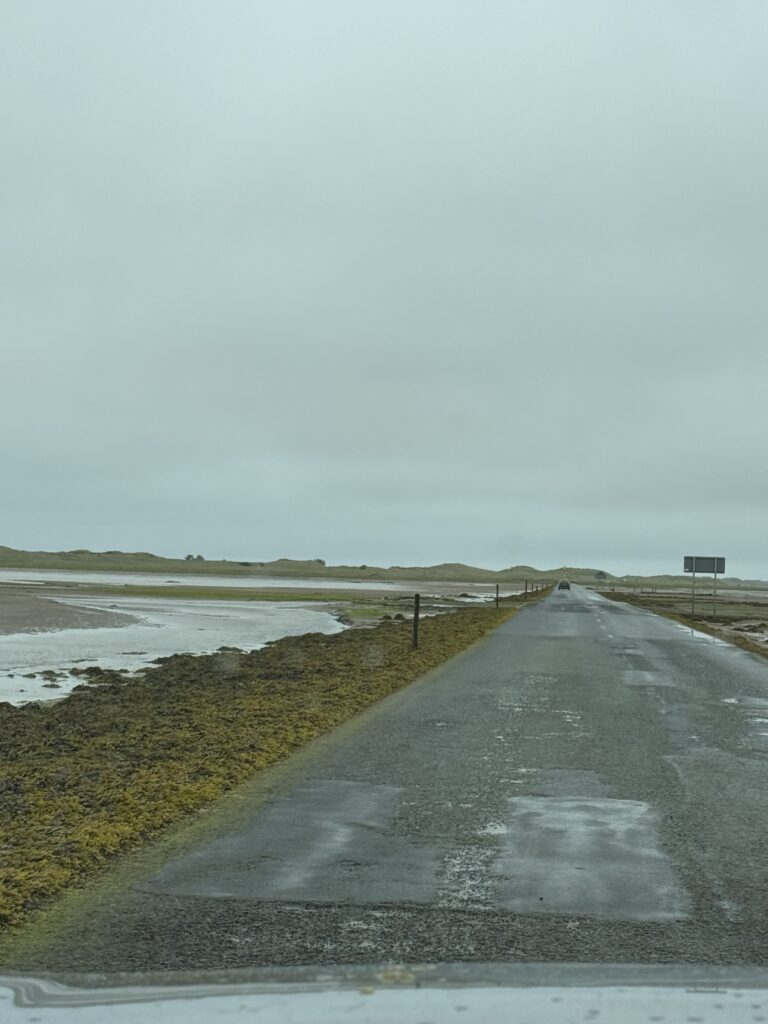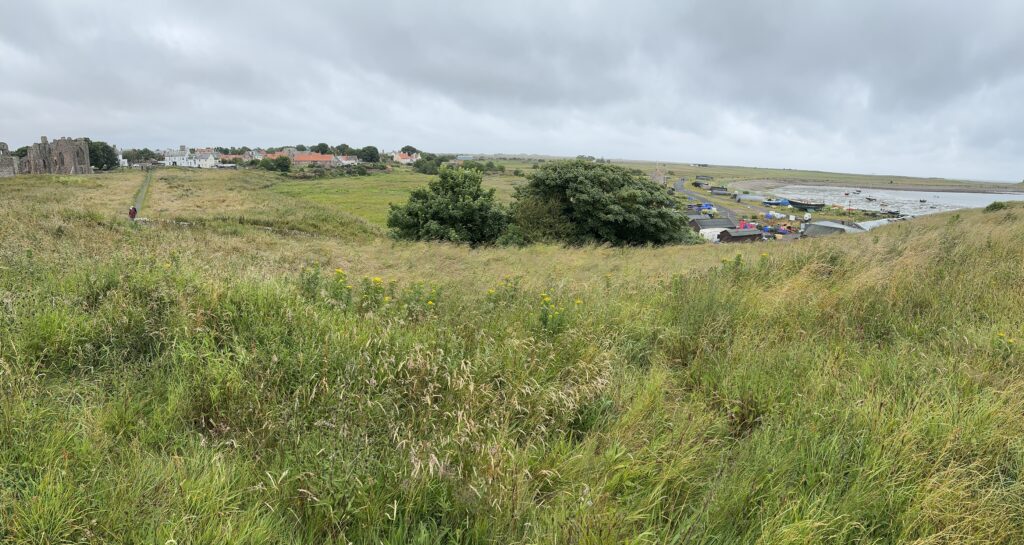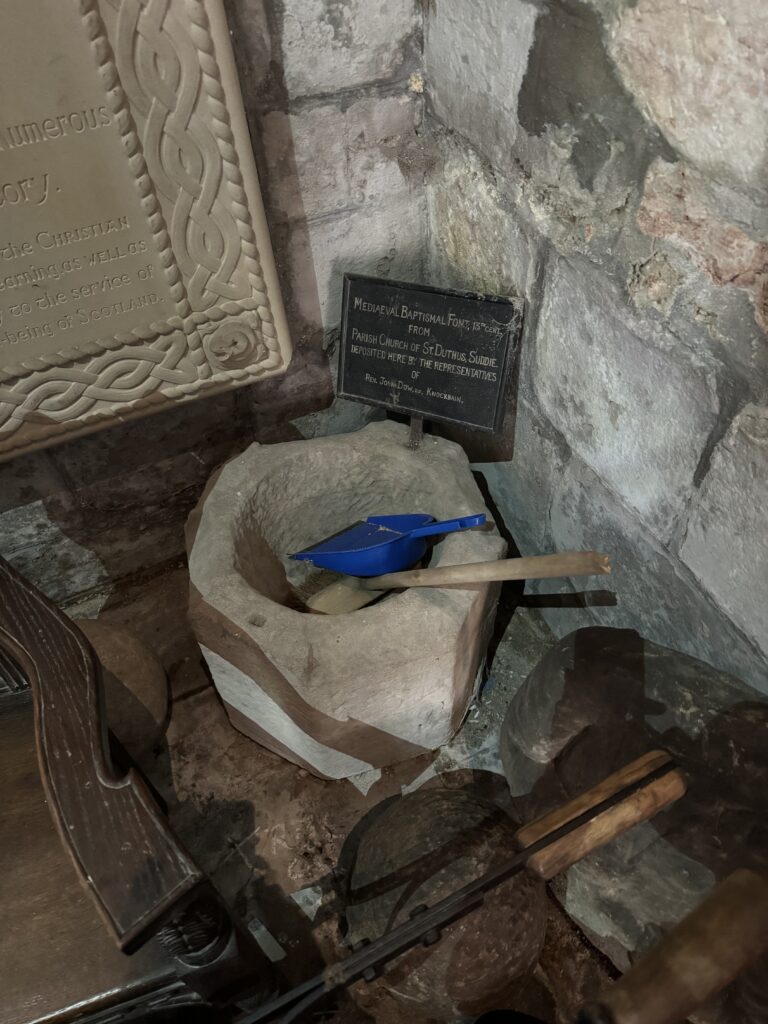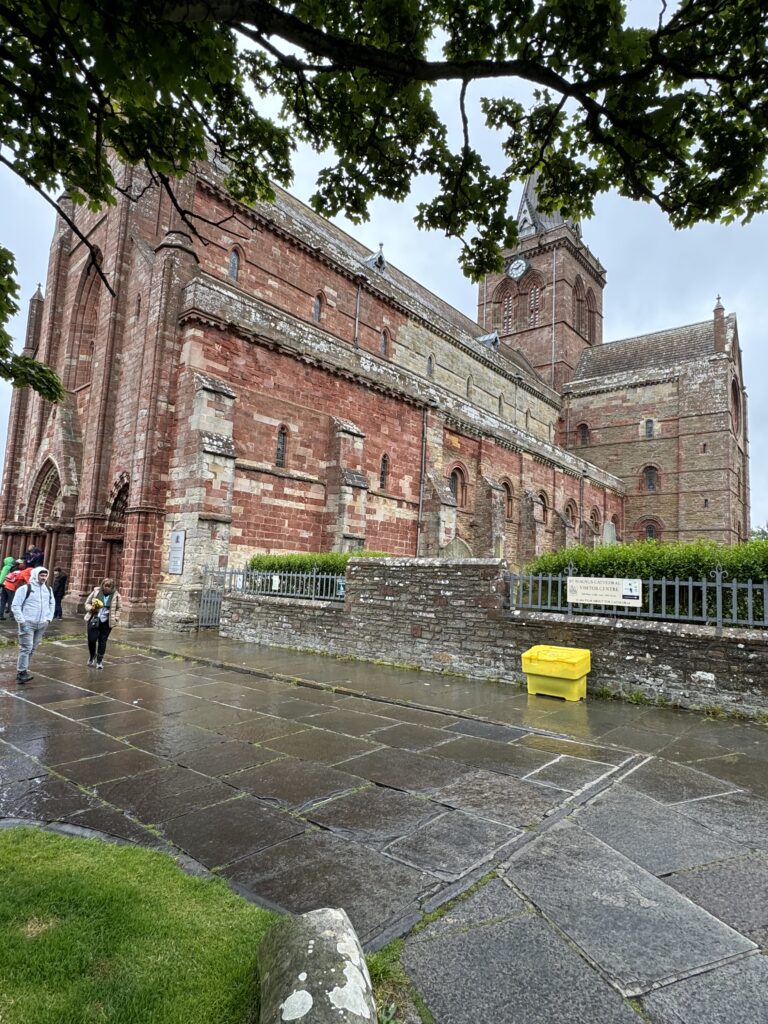
To continue the story about Oswald from yesterday’s post, Oswald went to battle against King Cadwallon at Heavenfield, near Hadrian’s Wall. Oswald was significantly outnumbered, so he installed a great wooden cross in the his camp and called his men together to pray for victory.
After he prevailed at Heavenfield, Oswald became king of Northumbria. He then sent to Iona to ask that they send him a bishop for his newly acquired kingdom. They sent Aiden. Aiden did not know the language of Northumbria, but Oswald having been raised at Iona knew both languages. Wo when Aiden preached Oswald would translate his sermons so people could understand the gospel.
Aiden also established the monastery at Lindisfarne, a tidal island only accessible when the tide goes out. As we approached Lindisfarne this rainy day we saw numerous pilgrims walking along the road to the causeway in their rain gear to cross on foot. As we drove by them, I’m sure some judged us for accessing the island with the help of a Vauxhall automobile, but I’m pretty sure Aiden wasn’t wearing Gore-Tex either.
Because we had been to Lindisfarne, we didn’t spend too much time at the ruins of the 12th century abbey, although we did find a stone monument there marking where Cuthbert was originally buried. We also walked to the shore to get a good look at Cuthbert’s Island, a tiny island off the southern coast of Lindisfarne to which Cuthbert would retreat to be alone with God.

Next, we walked back around the other side of the abbey to the bay where the Vikings murdered the Lindisfarne monks in 793 A.D., marking the start of 200 years of Viking terrorism on and domination of Britannia. The coastline had since receded and been covered with grass, but we could still see the contours of what used to be the beach where it had happened.
Lunch and the warm, dry setting of a pub were welcome after hiking in the cold, wind, and rain, but before long I was chomping at the bit to get moving. I tried to hurry the rest of the team without putting too much pressure in the system. We still had to get to Heavenfield.
We exited the causeway without doing anything sign worthy in search of Cuthbert’s cave and armed with some sketchy directions from a tour guide at Lindisfarne, which included a reminder to take one turn where there is no longer a sign for Cuthbert’s cave. Not a good sign.
Continue reading “Irish-Scotch Travel Journal Day – 14”





